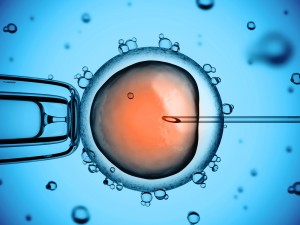 Describing the process of becoming biological mother to at least two children she will never herself nurture or rear, a former Californian college student, Leah Campbell, highlights the perils of hyperovulation. In a naive yet candid account, she describes the pleasure of having passed the “pre-screenings with flying colours” and her hopes of paving the way to a “debt-free postgraduate life for [herself]”. A good-looking young woman, it is not difficult to see why, eugenically speaking, she would pass the fertility industry’s eugenics test with flying colours.
Describing the process of becoming biological mother to at least two children she will never herself nurture or rear, a former Californian college student, Leah Campbell, highlights the perils of hyperovulation. In a naive yet candid account, she describes the pleasure of having passed the “pre-screenings with flying colours” and her hopes of paving the way to a “debt-free postgraduate life for [herself]”. A good-looking young woman, it is not difficult to see why, eugenically speaking, she would pass the fertility industry’s eugenics test with flying colours.
With little concern for the future needs of her biological children, however, (perhaps this will dawn later in life) she describes the pain, Stage IV endometriosis, five surgeries, $50,000 medical costs and subsequent infertility caused by the procedure.
This young woman now needs the fertility trade to give birth to any children at all. Her industry-induced infertility means that the procedures will be repeated in her own case and, if her eggs are either used up or damaged, the children she gives birth to will not be her own.
As we move into an era in which same sex male partners have a legal right to children by hyperovulated biological and surrogate mothers whose role is necessary if they are to win the children they themselves cannot together produce, it is worth pausing for thought.
In whose interests are these procedures? And where does the child figure in this deliberate fragmentation of his or her origins? What kind of delusional thinking would lead one to the conclusion that these newly arrogated legal rights are in the interests of the people created by these techniques?
Here is Leah Campbell’s account:
“When I was 25 years old, I “donated” my eggs — a practice in which young women are offered compensation for their time and willingness to undergo hormone injections and surgery for the purpose of providing healthy eggs to infertile couples.
As a struggling California college student, I had seen the fliers posted across campus and read the advertisements in the school paper. I was exactly the demographic donor agencies were targeting — young, healthy, educated and strapped for cash. I viewed egg donation as a way to help couples who were desperate to conceive, while also paving the way to a debt-free postgraduate life for myself.
I passed all the pre-screenings with flying colors. The doctors told me I was the perfect donor, reproductively healthy in every way. Two babies were eventually born as a result of my eggs, and I moved on with life feeling good about the role I had played in their conception.
Six months later my body began to fail me. I had always been a healthy and active woman, but suddenly I was crippled by pain and unable to live the life I had once enjoyed. I was soon diagnosed with stage IV endometriosis, a disease my doctors now believe was pushed into overdrive as a result of the potent hormones involved in my egg donation protocols.
I quickly lost my own ability to conceive and spent the next three years fighting to regain my health. Five surgeries and approximately $50,000 later, I can finally say that I am no longer facing daily pain and illness. But I will never be able to retrieve what has been lost.” Leah Campbell, “Paying Women to Take a Big Risk”
It is worth remembering that women’s eggs are needed both for human cloning and the creation of animal human hybrids – both of which techniques are legal in the UK. The Human Fertilisation and Embryology Act 2008 repealed the 2001 Cloning Act permitting the creation of human clones and animal human hybrids for research and destruction. If, as I have argued elsewhere, it is impossible to police the gestation of animal-human hybrids and human clones, these young women may well find themselves mother to creatures they would reject outright (with a newly discovered ‘wisdom of repugnance’ per Kass) notwithstanding their biological connectedness.







Comments